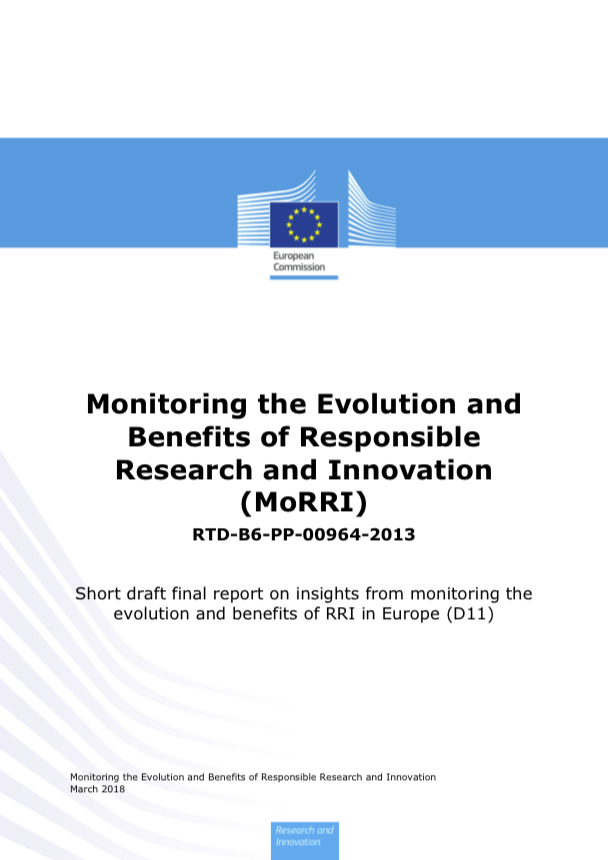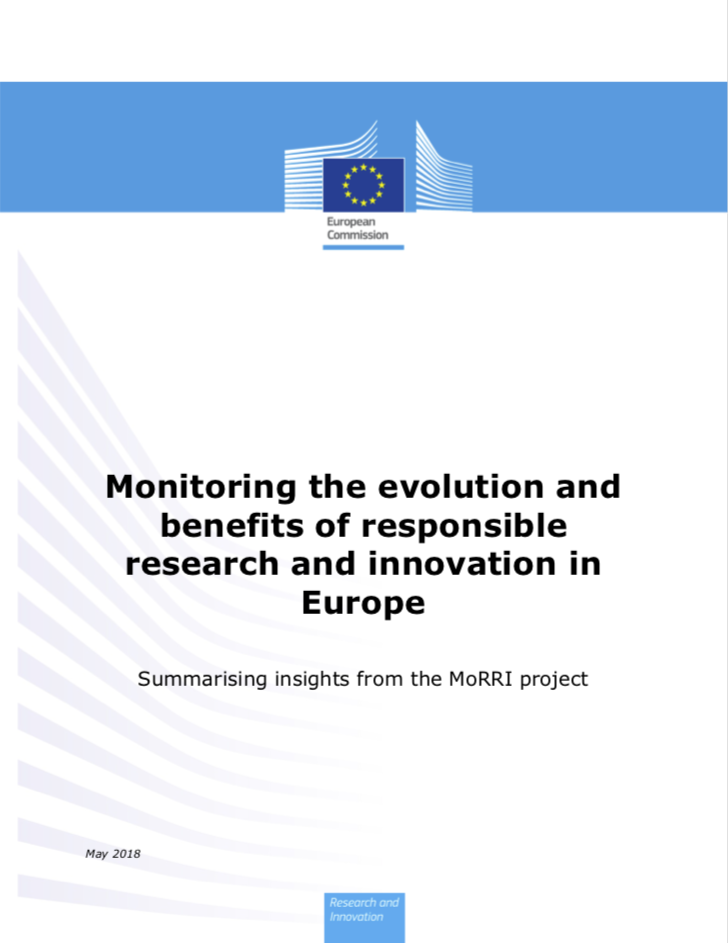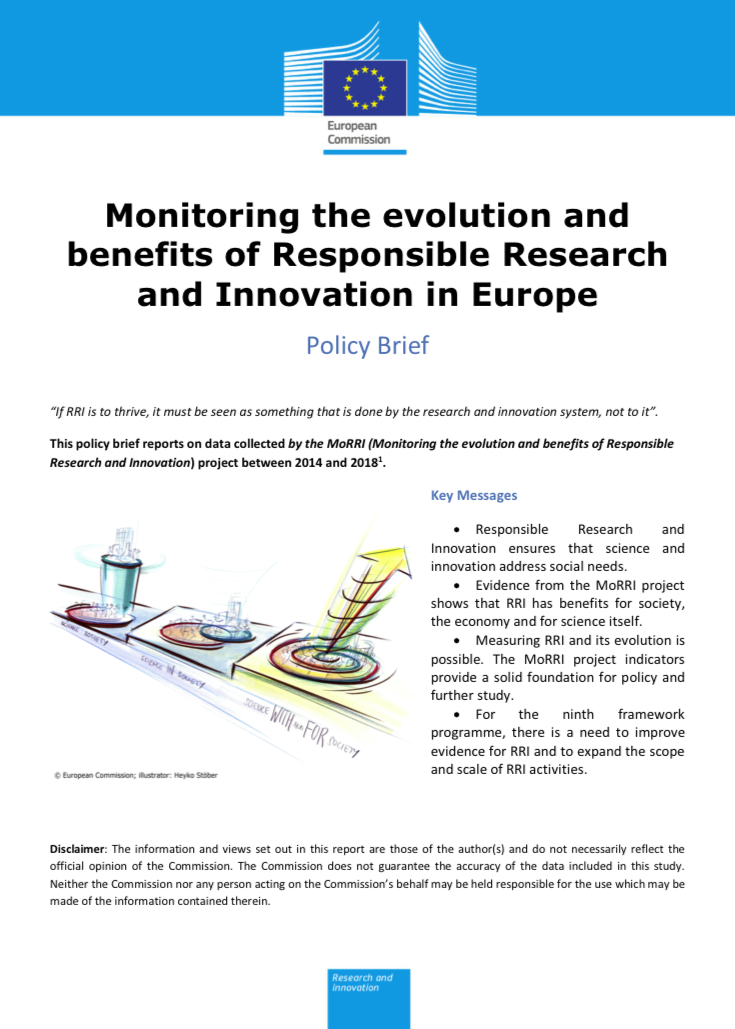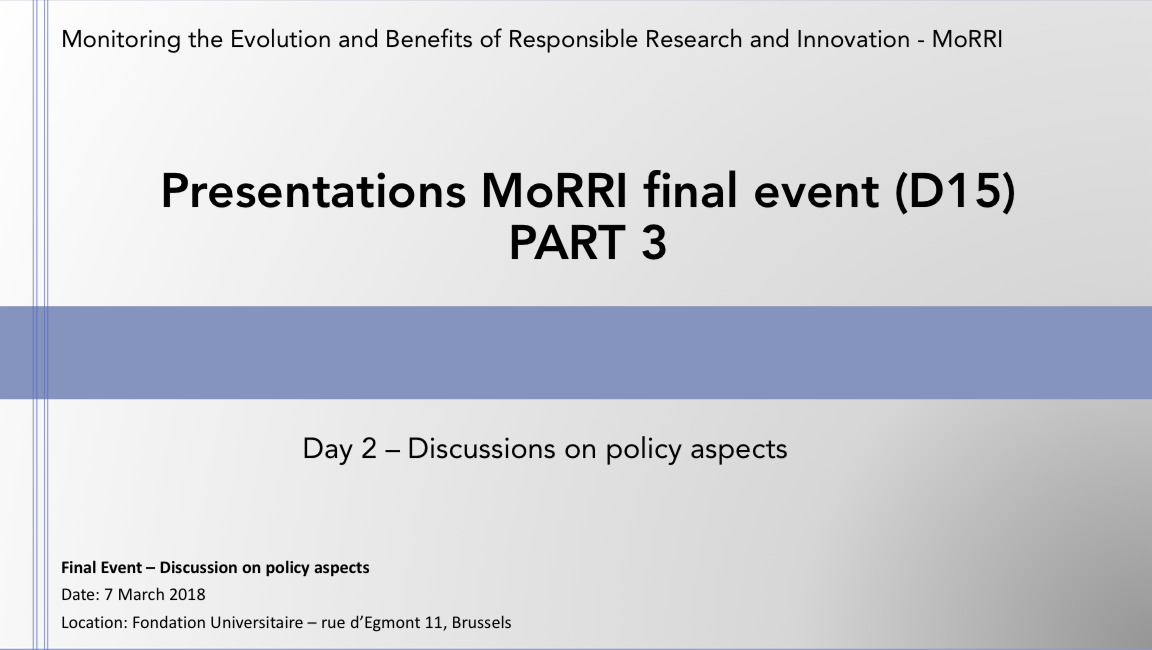MoRRI
Short draft final report on insights from monitoring the evolution and benefits of RRI in Europe (D11)
This report is a short draft version of the final report of the MoRRI project. The report fed into the final public event and covers all tasks of the MoRRI study.
Studies have shown that there are significant obstacles at both national and organisational levels to mainstreaming Responsible Research and Innovation (RRI) across the European Research Area (Smallman et al., 2015; Mejlgaard & Griessler, 2016). These relate topriorities and incentive schemes, but also simply to the lack of adequate measures of and for responsibility in research and innovation. Inability to evaluate, compare, and benchmark constitutes a barrier to international and organisational learning, whereas identification of useful indicators and metrics for RRI might contribute to bringing RRI from a peripheral position closer to the centre of activity.
The ‘Monitoring the Evolution and Benefits of Responsible Research and Innovation’ (MoRRI) project contributes to this agenda. It is concerned with the development of conceptually and empirically sound RRI indicators, and it takes first steps towards identifying the impacts of responsible practices in research and innovation. It combines review activities with an extensive empirical programme to formulate and populate measures of RRI. Components of the empirical programme include large-scale surveybased data collection among European researchers, research funding organisations, research performing organisations, societal stakeholder organisations, and manufacturing businesses; an extensive set of case-studies addressing the benefits of RRI; collection and analyses of databases, including bibliometric and patent data; secondary analyses of existing datasets at individual- and country-level; and desk research and qualitative data collection.



